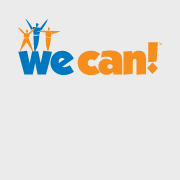About the EatPlayGrow� Curriculum and the Children's Museum of Manhattan (CMOM)
In 2009, the Children's Museum of Manhattan (CMOM) launched the EatSleepPlay� Health Initiative with the cooperation of the National Institutes of Health (NIH) and a National advisory board of pediatric and health experts, researchers, and community partners. At the heart of EatSleepPlay� is CMOM's adaptation of the NIH's We Can! (Ways to Enhance Children's Activity & Nutrition)® program (originally for parents and children ages 8 to 13) into the 11 lesson EatPlayGrow� curriculum for children ages 6 and younger and their adult caregivers. This curriculum combines the latest science and research from the NIH with CMOM's holistic arts and literacy-based pedagogy to engage families and adults who work with young children with creative programs and consistent health messages in informal and formal learning environments.
As part of the EatSleepPlay� Health Initiative, CMOM also developed a comprehensive model of community engagement that utilizes the lessons from the EatPlayGrow� curriculum to provide: Direct Service Programs for Parents and Children in low-income communities; Professional Development Trainings for adults who work with young low-income children; Partnership Building and Community Resource Development to create, build, and sustain a community network of organizations and city agencies; EatSleepPlay�: Building Health Every Day, an interactive health exhibit at CMOM and accompanying public program series; and exhibit component plans and visual treatments for small museums, libraries, and community centers.
Evaluation Results
Beginning in 2009, CMOM conducted a series of third party pilot evaluations to assess the impact of the EatPlayGrow� curriculum on participants� health knowledge, attitudes, and behaviors. Studies were conducted in parent-child engagement programs with low-income families in the South Bronx and New Orleans (3-year study); professional development trainings with home-based childcare providers who work with low-income children in New York City (2-year study); and health education trainings for the staffs and families of eight Head Start centers in New York City (2-year study).
Evaluation findings show that across informal and formal settings, and with demographically diverse low-income audiences, participants made clear changes to their purchasing preferences and food habits; showed positive shifts in attitudes and behaviors around food, physical activity, and sleep; and highlighted the importance of working with children at a very early age. The findings also stated that one of the EatPlayGrow� curriculum's successful elements was utilizing an engaging arts and literacy-based approach to translate complex health concepts to diverse audiences. Thus, despite traditional economic and other challenges that characterize food
and nutrition habits in low-income communities, the research underscores the accessibility, adaptability, and cultural relevance of the EatPlayGrow� curriculum in a range of high need childcare settings and home environments. The research also underscores the curriculum's effectiveness in connecting audiences to existing community-based programs and suggests that CMOM and its partners have created a unique �community hub� model of complementary components that provides an innovative solution to combating obesity.
About CMOM
CMOM's mission is to inspire children and their families to learn about themselves and the culturally diverse world in which they live, through a unique environment of interactive exhibitions and programs. Since its founding in 1973, CMOM has emerged as a leader in developing interactive and educational exhibitions and programs that address the ever- evolving needs of families. CMOM has invested more than 30 years in the development of a comprehensive arts and literacy-based early childhood education methodology, which informs all of its interactive exhibitions, programs, and outreach activities. All of CMOM's exhibitions and programs are designed to accommodate diverse audiences, provide multiple opportunities for a child's emerging skills to flourish, and for parents, caregivers, and teachers to become active partners in a child's early education and healthy growth and development. Today, CMOM serves more than 400,000 individuals each year, including families who visit the Museum to experience its five floors of exhibitions and public programs, as well as 35,000 individuals who participate in CMOM's extensive community outreach programming in low-income communities throughout New York City. For more information on CMOM and the EatSleepPlay� Health Initiative please visit www.cmom.org/eatsleepplay.
About We Can!
We Can! (Ways to Enhance Children's Activity & Nutrition)® is a science-based National education program developed by the National Institutes of Health (NIH), designed to help children stay at a healthy weight through improving food choices, increasing physical activity, and reducing screen time. The program's messages are derived from interventions shown to be effective in NIH-funded studies on obesity in children and adolescents, including clinical trials and community intervention studies. We Can! focuses on reaching parents and families as a primary group for influencing young people, and includes outreach to community organizations, national-level partners, and media to disseminate its messages. Program resources include parent and youth curricula; additional tip sheets and tools; guidance for community organizations on partnership outreach and participant recruitment/retention; and technical assistance/training, designed to enable communities and partners to adapt the program to fit their specific needs. In the past, communities have used the program's resources and activities to reach African American, Caribbean American, Hispanic American, Asian American and American Indian audiences. We Can! also offers a growing number of resources in Spanish. Four NIH Institutes support the program: the National Heart, Lung, and Blood Institute; the National Institute of Diabetes and Digestive and Kidney Diseases; the Eunice Kennedy Shriver National Institute of Child Health and Human Development; and the National Cancer Institute. For more information, visit www.nih.gov/wecan.
| Back to Table of Contents | Back to Top |
NIH Publication No. 13-7818
April 2013











